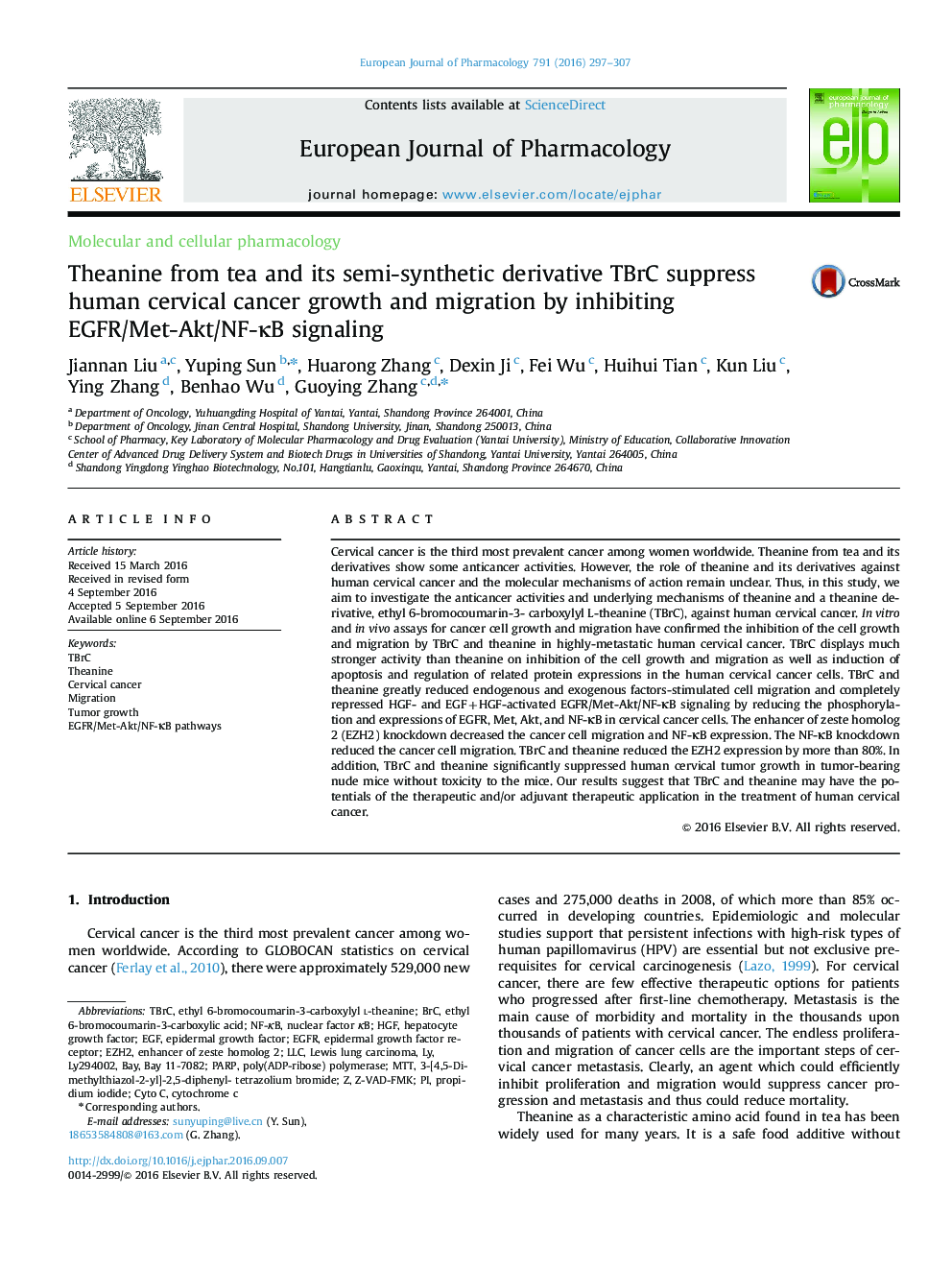| Article ID | Journal | Published Year | Pages | File Type |
|---|---|---|---|---|
| 8530069 | European Journal of Pharmacology | 2016 | 11 Pages |
Abstract
Cervical cancer is the third most prevalent cancer among women worldwide. Theanine from tea and its derivatives show some anticancer activities. However, the role of theanine and its derivatives against human cervical cancer and the molecular mechanisms of action remain unclear. Thus, in this study, we aim to investigate the anticancer activities and underlying mechanisms of theanine and a theanine derivative, ethyl 6-bromocoumarin-3- carboxylyl L-theanine (TBrC), against human cervical cancer. In vitro and in vivo assays for cancer cell growth and migration have confirmed the inhibition of the cell growth and migration by TBrC and theanine in highly-metastatic human cervical cancer. TBrC displays much stronger activity than theanine on inhibition of the cell growth and migration as well as induction of apoptosis and regulation of related protein expressions in the human cervical cancer cells. TBrC and theanine greatly reduced endogenous and exogenous factors-stimulated cell migration and completely repressed HGF- and EGF+HGF-activated EGFR/Met-Akt/NF-κB signaling by reducing the phosphorylation and expressions of EGFR, Met, Akt, and NF-κB in cervical cancer cells. The enhancer of zeste homolog 2 (EZH2) knockdown decreased the cancer cell migration and NF-κB expression. The NF-κB knockdown reduced the cancer cell migration. TBrC and theanine reduced the EZH2 expression by more than 80%. In addition, TBrC and theanine significantly suppressed human cervical tumor growth in tumor-bearing nude mice without toxicity to the mice. Our results suggest that TBrC and theanine may have the potentials of the therapeutic and/or adjuvant therapeutic application in the treatment of human cervical cancer.
Keywords
Related Topics
Life Sciences
Neuroscience
Cellular and Molecular Neuroscience
Authors
Jiannan Liu, Yuping Sun, Huarong Zhang, Dexin Ji, Fei Wu, Huihui Tian, Kun Liu, Ying Zhang, Benhao Wu, Guoying Zhang,
